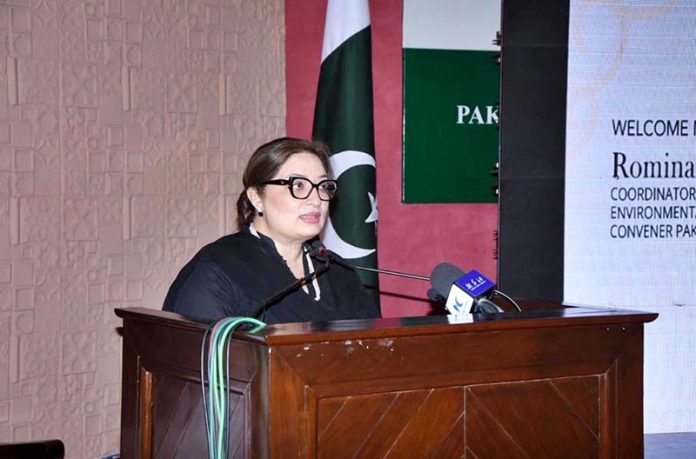By Ali Imran
ISLAMABAD: Pakistan is paying a steep price for its growing plastic pollution crisis, with 3.3 million tons of plastic waste generated annually causing severe economic, social, and environmental damage, the Prime Minister’s Coordinator on Climate Change, Romina Khurshid Alam, warned on Thursday.
Speaking at a seminar during Green Action Week 2025 at the National University of Sciences and Technology (NUST), Alam stressed that single-use plastics are not just an eyesore but a major driver of climate change, urban flooding, biodiversity loss, and public health risks.
“Plastic pollution has become a defining challenge of our era, with millions of tons choking rivers, cities, and marine ecosystems annually,” she said, adding that microplastics are now infiltrating human bodies, demanding urgent policy and societal action.
Citing global studies, Alam highlighted the staggering financial burden of plastic waste.
A 2021 World Wide Fund for Nature (WWF) report estimated the lifetime cost of plastic produced in 2019 alone at $3.7 trillion.
The United Nations Environment Programme (UNEP) places annual global environmental damages from plastic at $19 billion, while other research suggests marine plastic pollution results in losses between $500 billion and $2.5 trillion each year.
Pakistan, she noted, is no exception. With most of its plastic waste improperly handled, the country faces rising cleanup costs, healthcare expenses, and climate-related damages — all of which strain an already fragile economy.
To combat the crisis, Alam said the government has enacted a nationwide ban on single-use plastics, beginning with strict enforcement in Islamabad and extending across provinces. The regulations target polythene bags, disposable cutlery, straws, and other high-waste items, with penalties for violators.
“This ban is only part of the solution. Regulation alone is not enough — we need behavioral change to replace throwaway habits with sustainable practices,” Alam emphasized.
As part of the government’s “Plastic-Free Pakistan” campaign, alternatives such as cotton bags, paper packaging, and biodegradable products are being promoted. Confiscated plastics are also being repurposed into benches and planters to encourage a zero-waste lifestyle.
The campaign is backed by community engagement and awareness drives to help citizens adopt greener practices. Alam urged industries, local authorities, and the public to take joint responsibility, pointing to Punjab’s partial success with plastic bans as a model to expand.
“Together, let us turn the tide on plastic pollution to secure healthy rivers, vibrant habitats, and sustainable communities,” she said. “This is an investment in our environment and economy that safeguards both current and future generations.”




